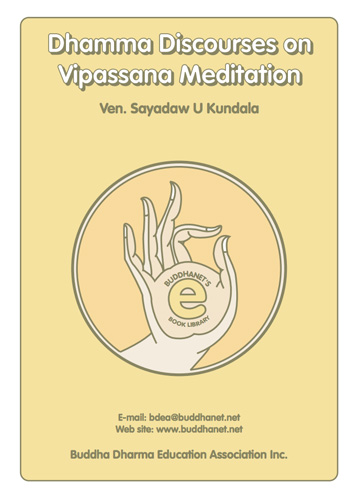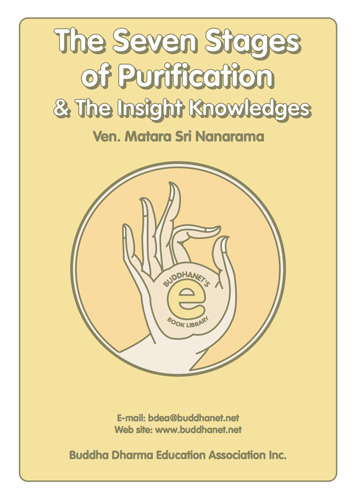 Image search results - "Knowledge" Image search results - "Knowledge" |

07_How_Do_We_Gain_Knowledge_and_Wisdom.mp3How Do We Gain Knowledge and Wisdom?4076 viewsSix talks by Ven. Dr Sri Dhammananda on Buddhist Teachings and Practice.
|
|

73_knowledges.pdfSeventy-Three Kinds of Knowledge3237 viewsVen. Nyanadassana, Bhikkhu
Since these knowledges are, as a Summary, very briefly stated,the present translation has explanatory notes in order to facilitate the reader understand them, at least intellectually, more easily. These explanations are based on the Pañisambhid -magga, the Visuddhi-magga and their corresponding Commentaries, and their references are clearly distinguished. The translation of each knowledge
is repeated in the Notes, in bold, for convenient reading.
|
|

73_Knowledges.pdfWisdom and the Seventy-Three Kinds of Knowledge3088 viewsThe 'Seventy-Three Kinds of Knowledge' appear as a
Summary or Table of Contents (matika) in the first Treatise
on Knowledge (matika-katha) of the Canonical book Patis-
ambhida-magga (translated by Bhikkhu Nanamoli as "The
Path of Discrimination", PTS ed. 1982).
|
|

allkunda.pdfDiscourses on Vipassana Meditation10568 viewsSayadaw U Kundala is a renowned meditation master in the Mahasi Sayadaw tradition of Burma, noted for his loving-kindness. In these Dhamma talks the stages of the practice and the Insight Knowledges are explained. The method of meditation is given with detailed instruction. There is a detailed explanation of the Contemplation of Feelings, the second foundation of mindfulness, which, in the Theravada tradition, is the key to the Insight Knowledges. Overall, in the Sayadaw's teachings, there is much for the Vipassana or insight meditator to be inspired by.
|
|

bm7insight.pdfSeven Stages of Purification and Insight Knowledges8065 viewsThe seven stages of purification provide the framework for the practising disciple?s gradual progress from the cultivation of virtue up to the attainment of the final goal. Integral to the higher stages of purification are the nine types of insight-knowledge, by which the disciple breaks through the delusions covering his mental vision and penetrates through to the real nature of phenomena.
|
|
|
|
